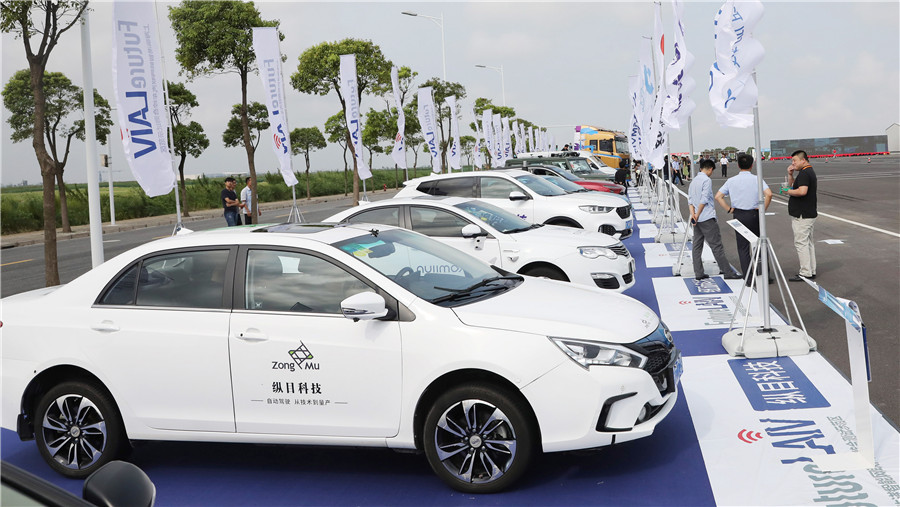Lingang takes the high road to fast growth

China's first 'land, sea and air' test zone planning industrial chain for connected and smart vehicles
The Shanghai Lingang Autonomous and Informationalized Vehicle Integrative Testing and Demonstration Zone, part of China's first "land, sea and air" self-driving comprehensive testing area for intelligent connected vehicles, is planning to set up a complete industrial chain for connected cars in Lingang, Shanghai.
Work on the first phase of the testing and demonstration zone was completed recently. The demonstration area has 26.1 kilometers of open road test area and a closed testing area of 3.2 square km for connected vehicles, as well as a data center.
Unlike other such test areas in China, the Lingang center is fully equipped with 4G and 5G networks, making it one of the largest in terms of scale and amount of test scenarios, said Cang Xuejun, general manager of Shanghai Lingang Intelligent Connected Vehicle Innovation Center Co Ltd.
According to Cang, the closed road test area contains the nation's longest tunnel as well as roads ready to be covered with rain and fog, making the test scenarios complex and realistic. It would also conform to existing patterns in several domestic and international test zones, and cater to the requirements of companies and Chinese traffic data.
Intelligent connected vehicles, or connected cars, are vehicles equipped with internet access, or usually ones using wireless-based local area networks. This enables the car to access the internet and make intelligent connections with other vehicles, traffic, and environment like buildings and traffic lights, so as to make driving safer, easier, more comfortable and efficient.
Nearly 50 percent of all the new cars and vehicles in the country will be intelligent vehicles by 2020, while wireless networks will cover 90 percent of cars in major Chinese cities in the same period and all cars will be linked to China's homegrown satellite navigation system BeiDou, according to a development strategy announced by the National Development and Reform Commission.
Against such a backdrop, 22 provinces and municipalities had announced their plans to test autonomous vehicles by February. More than 100 license plates for road tests of connected cars were issued in 14 cities including Beijing, Shanghai, Chongqing, Shenzhen and Tianjin.
"The automotive manufacturing sector is one of the most advanced manufacturing industries that Shanghai is striving to develop. Connected vehicles are key to the city's upgrade plans and qualitative development of its automotive sector," said Zhang Jianming, vice-chairman of Shanghai Municipal Commission of Economy and Informatization.
China's first batch of car plates for road tests of connected cars was issued in Shanghai in March 2018, allowing vehicles to conduct open road tests at the National Connected Vehicle Shanghai Pilot Zone or China's first intelligent connected car demonstration area in Shanghai's Jiading district.
To date, the city's 37.2-kilometer-long open road is facilitating a batch of domestic and international automotive manufacturers including SAIC Motor Corp Ltd, the largest auto company in China's A-share market, and Germany's BMW for up to 50,000 kilometers of testing and optimizing their autonomous technologies, said Zhang.

